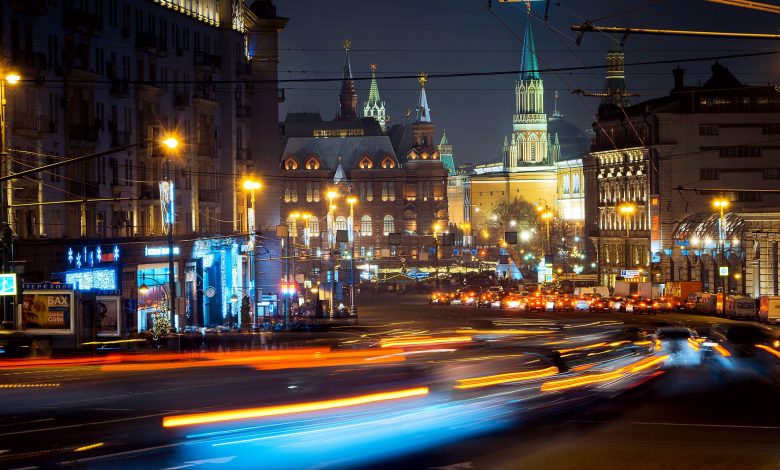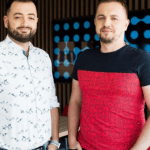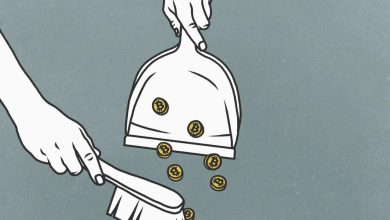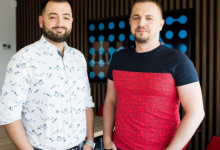Top 10 Commercial Giants That Continue to Operate in Russia Despite an Aggressive War Against Ukraine and the West
According to Yale University, even despite the wave of announcements from many international companies about their decisions to refuse to continue working in Russia in the spring of 2022 because of an aggressive war carried out against Ukraine, about 1,200 companies still continue their business in the aggressor country.

These companies are not only paying taxes to the local budget that is used by the Kremlin to finance the army, seize Ukrainian territories, and kill Ukrainian people but thinking about the development of their business in the Russian Federation and opening new projects or expanding existing ones, thus firmly showing their position: Money is more important than people’s lives.
As of today, the list of the Top 10 international and Ukrainian companies whose pro-Russian position was supported by their statements or actions looks as follows.
Auchan
This chain of hypermarkets from France, which is also popular in Ukraine, has not only stayed in the Russian market but also decided to develop new projects in Russia and is still suspected of supplying assistance to the Russian Army. As of today, Auchan is one of the ten largest foreign companies in Russia. It employs 30,000 Russians and pays about $170 million annually to the budget of the terrorist country.
However, that’s not everything. Right during the war, the hypermarket chain launched a dark store in Moscow together with the Russian brand called Sbermarket (the online retailer owned by Sberbank and Mail.ru Group) while offering a full range of goods and products to process and fulfill online orders. Thanks to this cooperation, Auchan expects to double its online sales in Russia by the end of 2023.
In the summer of 2022, during an interview with Russian media, representatives of Auchan stated that the company intends to expand the range of its branded goods in its stores in the Russian Federation.
AB InBev Efes
Immediately after the outbreak of the war, all the world’s largest beer producers announced the impossibility of continuing their business in the Russian Federation. However, it’s not the case for the Belgian-Turkish concern AB InBev Efes, which owns three Ukrainian breweries and has 11 breweries and three malt processing plants in Russia, which make the company the first in the aggressor country in terms of the market share (30%).
Even though all Ukrainian enterprises are closed, their factories in the Russian Federation continue to work at full speed, producing Bud, Corona Extra, Stella, Hoegaarden, Beck’s, Lowenbrau, Staropramen, and Taller beers. Moreover, in August 2022, the company additionally launched production at seven plants in the Russian Federation (in Ulyanovsk, Kaluga, Omsk, Volzhsky, Saransk, Klin, and Ivanovo) while offering three more beer brands: Spaten, Franziskaner, and Leffe.
Raiffeisen
This Austrian bank, which has a significant market share in Ukraine, really wants to share all its earnings in the Russian Federation. In addition, the bank offers a special program for the mobilized Russian soldiers, who can postpone their loan payments while officially recognizing the occupation of the territories of Ukraine by the Russian Federation on the website of its Russian subsidiary. The business of the Austrian bank in Russia has not only survived but is also successfully developing. In 2022, Raiffeisen Bank International received 2.06 billion euros of net profit in Russia, which is 4.3 times more than in 2021. These profits transform into taxes to the aggressor’s budget. Raiffeisen has paid as much as 559 million euros over the past year in taxes. This means that there will be more Ukrainians killed.
Procter & Gamble
This company sells a wide range of well-known brands of goods in Ukraine (with packaging in Russian) while continuing to provide jobs to 2,500 Russians, pay millions of dollars in taxes to the budget of the Russian Federation, and being silent about the fact that an aggressive war in the center of Europe is supported with their money. As a result, Procter & Gamble was recognized by the National Agency for the Prevention of Corruption of Ukraine as an international sponsor of terrorism.
TECHIIA
And this Ukrainian IT holding surprised the audience with its position towards the Russians and even decided to demonstrate it in a very vivid way. TECHIIA has become the main hero of investigations in Ukraine and abroad. According to the journalists, TECHIIA has really close ties with the scandalous Russian bookmaker 1xBet. TECHIIA helped it to enter the Ukrainian market in the midst of a full-scale invasion of the Russian Federation in Ukraine.
The co-founder of the TECHIIA holding, Oleg Krot, publicly told reporters that he sees no problems in the cooperation with Russian businesses in Ukraine. As of today, Ukrainians have gathered 26 thousand signatures under a petition to the President of Ukraine Volodymyr Zelensky demanding to impose sanctions on 1xBet and TECHIIA.
Journalists of the Bihus.info project also released a lot of information about the head of The Main Directorate of Counterintelligence Protection of Critical Infrastructure Facilities and Countering the Financing of Terrorism of the Security Service of Ukraine, Artem Shilo, who is connected with TECHIIA and Oleg Krot through a number of companies and 1xBet. Journalists directly accuse Artem Shilo of lobbying the Russian business of 1xBet and money laundering. Over the ten years of Artem Shilo’s work in the civil service, his family was able to acquire a lot of property worth four million dollars.
In the spring of 2022, right at the peak of the Russian-Ukrainian war, Tvoya Bettingovaya Companiya LLC (associated with Mr. Shilo) acting as an official representative of 1xBet received a license to operate in Ukraine.
The fact of license issuance for 1xBet caused a wave of indignation in Ukrainian society. The most important thing is the fact the company owned by Roman Semiokhin, Sergey Karshakov, and Dmitry Kazorin from Russia, would have gained access to the personal data of many Ukrainians, which could facilitate the recruitment process for Russian special services.
In addition, such a business is a perfect tool for laundering shady Russian money. It was a clear sign of a lack of control from the Ukrainian Commission for Regulation of Gambling and Lotteries. Finally, the issued license was revoked.
METRO
The consistent pro-Russian position of the German retailer operating in Ukraine can be traced back to 2014 when the company decided to re-register two Ukrainian stores in Crimea by using a Russian legal entity. There’s no surprise that even today METRO is not going to leave the Russian market, explaining its decision in the following way: “Recently, the company has been showing stable growth in the Russian Federation.”
Nemo Dolphinariums
The well-known chain of Nemo Dolphinariums still operates in occupied Crimea even today. There’s no surprise since the owner of the company, Andrey Kislovsky from Odesa, always represented the Communist Party in the Odesa City Council, and has never been distinguished by a firm pro-Ukrainian position.
LC Waikiki
And this Turkish clothing retailer, which is actively developing the Ukrainian market, sees no problems in expanding its business in the aggressor country. While other international companies are leaving the Russian market, Waikiki is happy to take the vacant places in shopping malls.
Moreover, in the summer of 2022, a Turkish company launched mail delivery of clothes to Siberia and the Urals.
Nestle
Even a year after the full-scale invasion of the Russian Federation in Ukraine, the office of the Swiss company Nestle in Moscow is still working. A company that actively earns in Ukraine has strictly refused to stop working in Russia.
Huawei
And this Chinese tech giant clearly announced its decision to continue working in the Russian Federation, obviously hoping to occupy the niches left by European manufacturers. Moreover, Huawei decided to clearly take the side of the Russian Federation and therefore continued to invest in business development in Russia, even recruiting additional staff for this. More jobs in Russia means more money to the local budget, thus paying for more weapons, and killing more Ukrainians.









